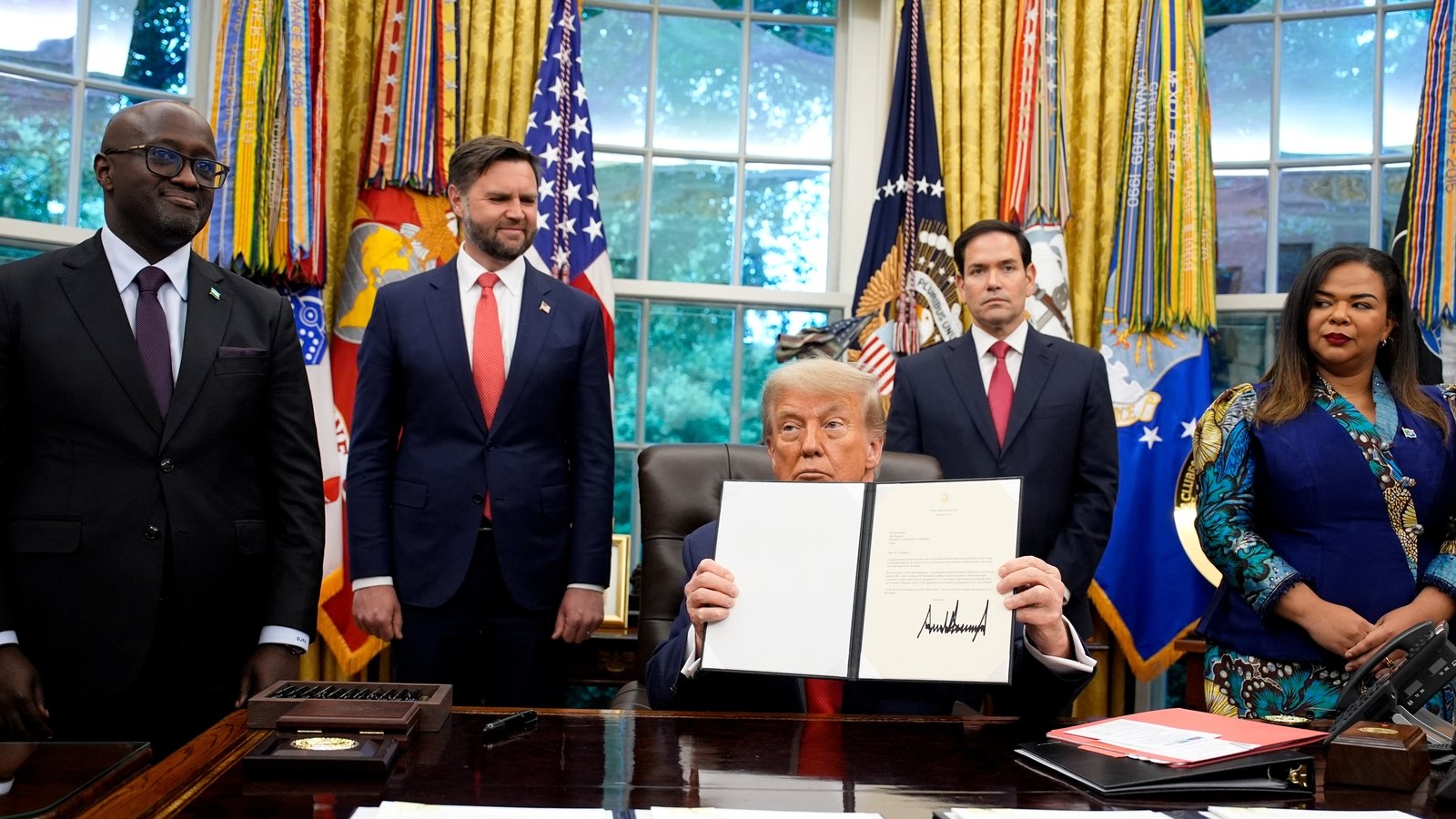Rwanda and the Democratic Republic of Congo finalized a peace agreement in Washington yesterday aimed at halting hostilities that have resulted in thousands of deaths. Both nations committed to retracting support for guerrilla factions, with President Donald Trump taking pride in securing mineral wealth.
“Today, the violence and destruction cease, ushering in a new era of hope and opportunity for the entire region,” Ms. Trump stated as he greeted the foreign ministers of the two countries at the White House.
“This is an extraordinary day.”
The agreement follows the M23, a rebel group affiliated with the ethnic Tutsi community in Rwanda, which made rapid advances through the mineral-rich eastern Congo this year, capturing significant territories, including the strategic city of Goma.
Rwanda has refuted claims of direct support for the M23 but has insisted on an end to another militant group, the Democratic Forces for the Liberation of Rwanda (FDLR), formed by ethnic Hutus linked to the 1994 Rwanda genocide against Tutsis.
Rwandan Foreign Minister Olivier Nduhungirehe delivered remarks during the Oval Office meeting at the White House.
The agreement stipulates the “neutralization” of the FDLR, with Foreign Minister Nduhungirehe asserting that the “irreversible and verifiable cessation of state support” to the Hutu militants should be prioritized.
This initiative will be “accompanied by a lifting of Rwanda’s defensive measures,” Mr. Nduhungirehe mentioned during a signing ceremony at the State Department.
However, he noted: “We must recognize the significant uncertainty prevailing in our region and beyond, as many prior agreements have gone unfulfilled.”
His Congolese counterpart, Therese Kayikwamba Wagner, emphasized the agreement’s commitment to respecting state sovereignty.
“It presents a rare opportunity to instigate change, not merely in words but through tangible action on the ground. While some wounds may heal, they will never completely vanish,” she remarked.
The agreement also establishes a joint body for security coordination to track progress and vaguely outlines a “regional economic integration framework” to be developed within three months.
Watch: Rwanda and Congo sign peace deal in US after rebel sweep
We need your consent to load this rte-player content. We utilize rte-player to manage additional content that may set cookies on your device and gather data regarding your activity. Please review the details and accept them to load the content. Manage Preferences
Trump takes credit. Mr. Trump has championed the diplomatic efforts leading to the agreement and initiated his White House event by citing a journalist’s assertion that he deserves the Nobel Peace Prize.
Speaking to reporters yesterday, Mr. Trump mentioned that the United States would be able to secure “extensive mineral rights from the Congo”.
The Congo is rich in vital mineral resources like lithium and cobalt, essential for electric vehicles and advanced technologies, with the US rival, China, being a significant player in the resource sector.
Mr. Trump admitted unfamiliarity with the conflict, hinting at the atrocities of the 1994 Rwanda genocide, where hundreds of thousands of Tutsis were brutally killed in just 100 days.
“I’m a little out of my depth on that one since I didn’t know too much about it. I knew one thing – they were fighting for many years with machetes,” Mr. Trump remarked.
The agreement saw a generally positive reception, but not unanimously.
Foreign Minister of the Democratic Republic of the Congo, Therese Kayikwamba Wagner, emphasized the agreement’s focus on respect for state sovereignty.
UN Secretary-General Antonio Guterres described the deal as “a significant step towards de-escalation, peace, and stability” in eastern Congo and the Great Lakes region.
“I urge the parties to fully honor the commitments outlined in the Peace Agreement… including the cessation of hostilities and all other agreed measures,” Mr. Guterres stated.
The landmark agreement was also commended by the chairman of the African Union Commission.
Mahmoud Ali Youssouf, who witnessed the signing of the deal in Washington, “welcomed this significant milestone and praised all efforts aimed at promoting peace, stability, and reconciliation in the region,” according to a statement.
Conversely, Denis Mukwege, a gynaecologist who was jointly awarded the 2018 Nobel Peace Prize for his efforts to halt the epidemic of sexual violence in the Congo, expressed concern over the agreement, arguing it predominantly favors Rwanda and the United States.
The deal “amounts to rewarding aggression, legitimizing the exploitation of Congolese natural resources, and compelling the victim to relinquish their national heritage by sacrificing justice for the sake of a tenuous and fragile peace,” he stated ahead of the signing.
Physicians for Human Rights, an organization that has operated in the Congo, praised the de-escalation but noted the agreement has “significant omissions,” particularly regarding accountability for rights violations.
